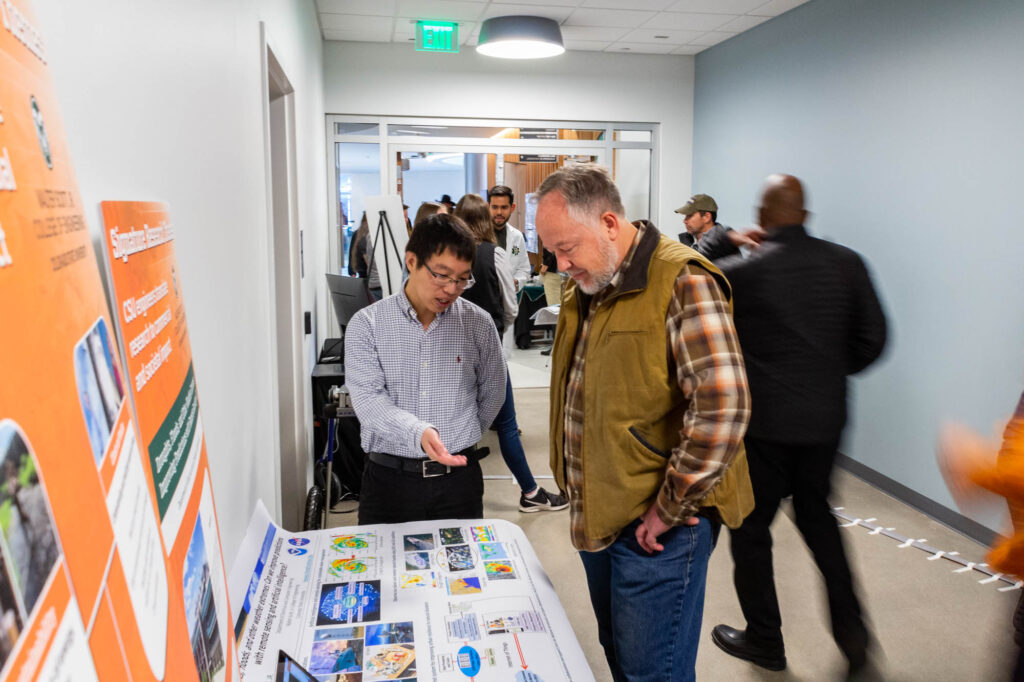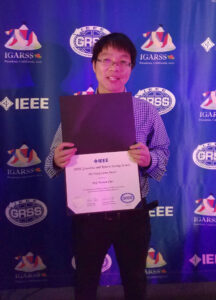
Haonan Chen continues to gain recognition for work that leverages artificial intelligence and remote sensing to study the water cycle and improve weather prediction.
The assistant professor of Electrical and Computer Engineering at Colorado State University has received the Early Career Award from the Institute of Electrical and Electronics Engineers Geosciences and Remote Sensing Society, or IEEE GRSS. He was also named a recipient of the Santimay Basu Prize from the International Union of Radio Science, known as URSI.
“Haonan is on a roll,” said Edwin Chong, head of the Department of Electrical and Computer Engineering. “These awards are a testament to his contributions and the promise of his research.”
Earlier this year, Chen also received a National Science Foundation CAREER award for his AI research to advance weather forecasting.
About the awards

Chen received the IEEE GRSS Early Career Award “for outstanding contributions to radar and satellite remote sensing of precipitation and machine learning applications.” The award recognizes scientists and engineers under 35 who have demonstrated outstanding ability and promise for significant contributions in the future, according to the society’s website.
The Santimay Basu Prize recognizes rising stars in the field of radio science. Chen received the honor “for outstanding contributions to active and passive remote sensing of precipitation and machine learning.” He will accept the award in August during the opening ceremony of the URSI General Assembly and Scientific Symposium in Sapporo, Japan.
Chen’s interests range from radar and satellite observations of natural disasters to big data analytics to multiscale hydro-meteorological data fusion in smart city applications. Before joining the ECE faculty in 2020, he was a researcher with the Cooperative Institute for Research in the Atmosphere, known as CIRA, and the National Oceanic and Atmospheric Administration.
“I’m excited that AI for atmospheric applications is garnering more and more interest,” said Chen. “These awards give me energy to pursue new ideas and work even harder.”